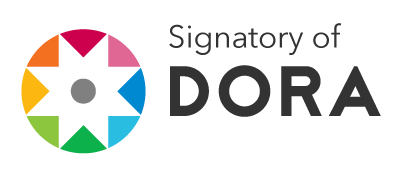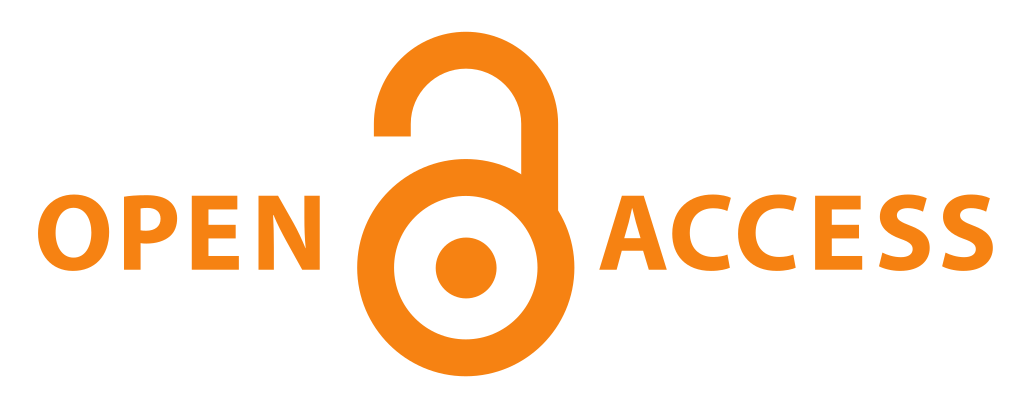Strategies for Autonomous Learning of English as L2 of Pre-Intermediate English Courses at UGC and ESIDE
Keywords:
autonomous learning, English as L2, communication skills, learning strategiesAbstract
This research on the autonomous learning of English as a second language (L2) was carried out in conjunction with pre-intermediate English students from La Gran Colombia University (UGC) and the School of Languages and Dialects of the National Army (ESIDE). The main objective was to implement the autonomous learning strategies of English as a L2 in the population sample. Initially, a review of background information related to the theoretical bases was carried out, for which the following categories of analysis were established: Autonomous Learning, Competencies and Abilities, Metacognition and New Technologies of English. The methodology used was mixed with a quantitative predominance under a quasi-experimental design, and we worked with an intentional probabilistic sample. All of the above was carried out through the implementation of instruments such as a competency level pre-test, a semi-structured questionnaire and a post-test, which allowed the results to be contrasted and analyzed. Finally, the results show that more than half of the population obtained academic improvement thanks to the implementation of 27 strategies for autonomous learning of English. Likewise, the adoption of an autonomous culture in their academic and professional lives is evident.
References
Andújar-Vaca, A., and Cruz-Martínez, M. S. (2017). Mensajería instantánea móvil: Whatsapp y su potencial para desarrollar las destrezas orales= Mobile instant messaging: Whatsapp and its potential to develop oral skills. Mensajería instantánea móvil: Whatsapp y su potencial para desarrollar las destrezas orales= Mobile instant messaging: Whatsapp and its potential to develop oral skills, 43-52.
Arango, L. and Escobar, L. (2014). Metacognición en el adulto mayor. Poiésis, 1(28), 1-4. https://www.aacademica.org/000-035/309
Aristega, C. J. E. M., Masacon, M. R. H. and Mayorga, D. C. E. (2018). El porqué del trabajo autónomo en la Educación Superior. En Memorias del cuarto Congreso Internacional de Ciencias Pedagógicas de Ecuador: La formación y superación del docente:" desafíos para el cambio de la educación en el siglo XXI" (pp. 339-348). Instituto Superior Tecnológico Bolivariano.
Arnau, J. (1995). Metodología de la investigación en psicología. En M. T. Anguera, J. Arnau, M. Ato, R. Martínez, J. Pascual, J., y G. Vallejo, G. (Eds.), Métodos de investigación en Psicología (Cap. 1). Madrid: Síntesis.
Byrnes, J. P., Wigfield, A., and Eccles, J. S. (2006). Development during early and middle adolescence. In P. Alexander and P. Winne (Eds.), Handbook of educational psychology (2nd Ed.). New York: Macmillan Publishing.
Baker, A., and Burri, M. (2016). Feedback on second language pronunciation: A case study of EAP teachers' beliefs and practices. Australian Journal of Teacher Education, 41(6), 1-19. https://ro.uow.edu.au/sspapers/2449/
Bandura, A. (1982). Self-Efficacy Mechanism in Human Agency. American Psychologist, 37(2), 122-147. https://doi.org/10.1037/0003-066X.37.2.122
Bautista I, Carrera G, León E, Laverde D. (2020). Evaluación de satisfacción de los estudiantes sobre las clases virtuales. Evaluación de satisfacción de los estudiantes sobre las clases virtuales. Minerva, 1(2), 5-12. https://dialnet.unirioja.es/servlet/articulo?codigo=8377947
Beltrán, M. (2017). El aprendizaje del idioma inglés como lengua extranjera. Revista Boletín Redipe, 6(4), 91-98.
Benson, P. (2001). Teaching and researching autonomy in language learning. England: Pearson Education Limited. 254 p.
Benson, P. and Voller, P. (1997). Autonomy and independence in language learning. New York: Longman.
Berenguer-Román, I. L., Roca-Revilla, M., and Torres-Berenguer, I. V. (2016). La competencia comunicativa en la enseñanza de idiomas. Domino de las Ciencias, 2(2), 25-31. https://dialnet.unirioja.es/servlet/articulo?codigo=5761589
Bosa Higarrerro, L., and Torres Higera, S. (2010). Criterios para el diseño de fichas didácticas que promueven el desarrollo de la competencia comunicativa en la lengua extranjera - inglés mediante el uso de canciones infantiles norteamericanas. https://hdl.handle.net/10901/5442
Cabal, C. (2019). Five digital resources for autonomous English language practice. British Council.https://www.britishcouncil.org/voices-magazine/five-digital-resources-autonomous-english-language-practice
Cambridge University (s.f.). English Language Assessment. (2023). https://www.cambridgeenglish.org/es/exams-and-tests/. Cambridge University Press & Assessment
Cuesta Medina, L. (2010). Metacognitive instructional strategies: a study of e-learners´ self-regulation. In Aerts, A., Colpaert, J. and Oberhofer, M. (Eds.). Fourteenth International CALL Conference Proceedings: Motivation and Beyond. ISBN: 978-9057282973
Cuesta Medina, L., and Anderson, C. E. (2010). Course design for graduate students: Strategic planning and actions. Paper presented at the 13th National ELT Conference – Challenges for the ELT Syllabus: Developing Competencies for the 21st Century, Universidad de La Salle, Bogotá, Colombia.
Del Real Jaraba, E., and Núñez Arrieta, M. Á. (2022). Factores que limitan el aprendizaje autónomo para la adquisición del inglés como lengua extranjera (Doctoral dissertation, Corporación Universidad de la Costa). https://hdl.handle.net/11323/9649
Dickinson, L. (1993). Talking shop: Aspects of autonomous learning. ELT journal, 47(4), 330-336. https://doi.org/10.1093/elt/47.4.330
Flavell, J. H. (1979). Metacognition and cognitive monitoring: A new area of cognitive-developmental inquiry. American Psychologist, 34(10), 906-911.Gordon, C. (2023). How Are Educators Reacting to Chat GPT? https://www.forbes.com/sites/anafaguy/2023/06/15/justice-department-will-investigate-pga-tour-liv-merger-report-says/?sh=6ddb14442314
Hardy-Gould, J. (2013). Learner Autonomy. Oxford University Press: English Language.
Hernández et al. (2010). Metodología de la investigación (5ta Ed.). McGraw-Hill Education.
Holec, H. (1981). Autonomy and foreign language learning (publicación original de Pergamon Press Pergamon.
Karam Rozo, J. M. (2011). Creatividad y videojuegos: nuevos paradigmas en la generación de aprendizaje autónomo. Revista Repertorio de Medicina Y Cirugía, 20(1), 45–50. https://doi.org/10.31260/RepertMedCir.v20.n1.2011.674
Krashen, S. D. (1987). Principles and Practice in Second Language Acquisition. Prentice-Hall International.
Lewis Ramsa (2021). How to Learn English On Your Own | Guide for Independent Learners. https://www.leonardoenglish.com/blog/learn-english-on-your-own
Ley 115/94, febrero 8, 1994. Diario Oficial. [D.O.]: 41214. (Colombia). http://www.secretariasenado.gov.co/senado/basedoc/ley_0115_1994.html
Ministerio de Educación Nacional (2006). Estándares básicos de competencias en lenguas extranjeras: Inglés. Serie guía Nº 22. https://eco.colombiaaprende.edu.co/wp-content/uploads/2021/08/Estandares-Basicos_V2021-1.pdf
Noreña, D. M. and Cano, L. M. (2020). Interculturalidad, enseñanza y aprendizaje del inglés como lengua extranjera. El papel del docente. http://hdl.handle.net/20.500.11912/8107
O'Malley, J. and Chamot, A., Stewner‐Manzanares, G., Kupper, L., and Russo, R. (2006). Learning Strategies Used by Beginning and Intermediate ESL Students. Language Learning. 35. 21 - 46.
Oxford, R. L. (2002). Language learning strategies in a nutshell: Update and ESL suggestions. Methodology in language teaching: An anthology of current practice, 4(3), 124-132. https://api.semanticscholar.org/CorpusID:143203929
Pereira, Z. (2011). Los diseños de método mixto en la investigación en educación: Una experiencia concreta. Revista Electrónica Educare, 15(1), 15-29. http://www.redalyc.org/articulo.oa?id=194118804003
Pineda Castillo, K. A. (2022). Desarrollo Autónomo de Competencias Comunicativas en el Idioma Inglés. Revista De Lenguas Modernas, (35), 211–231. https://doi.org/10.15517/rlm.v0i35.44485
Rueda Cataño, M. C., and Wilburn Dieste, M. (2014). Enfoques teóricos para la adquisición de una segunda lengua desde el horizonte de la práctica educativa. Perfiles educativos, 36(143), 21-28. http://www.scielo.org.mx/scielo.php?script=sci_arttext&pid=S0185-26982014000100018&lng=es&nrm=iso
Schraw, G. (1998). Promoting general metacognitive awareness. Instructional Science, 26(1-2), 113-125.
Schraw, G., and Dennison, R. S. (1994). Assessing metacognitive awareness. Contemporary Educational Psychology, 19(4), 460-475.
Schunk, D. H. (2008). Metacognition, self-regulation, and self-regulated learning: Research recommendations. Educational Psychology Review, 20(4), 463-467.
Ungureanu, C. and Georgescu, C. A. (2012). Learners' Strategies in Language Learning. Procedia - Social and Behavioral Sciences, 46, 5000-5004. https://doi.org/10.1016/j.sbspro.2012.06.375
Vygotsky, L. S. (1989). Concrete human psychology. Soviet psychology, 27(2), 53-77.
Weepiu Samekash, M. L. (2020). Uso de whatsapp para mejorar el aprendizaje autónomo en los jóvenes universitarios. Educare et Comunicare: Revista científica de la Facultad de Humanidades, 8(1), 78-87. https://doi.org/10.35383/educare.v8i1.396
Downloads
Published
How to Cite
Issue
Section
License
Copyright (c) 2023 Paradigma: Revista de Investigación Educativa

This work is licensed under a Creative Commons Attribution-NonCommercial-NoDerivatives 4.0 International License.








